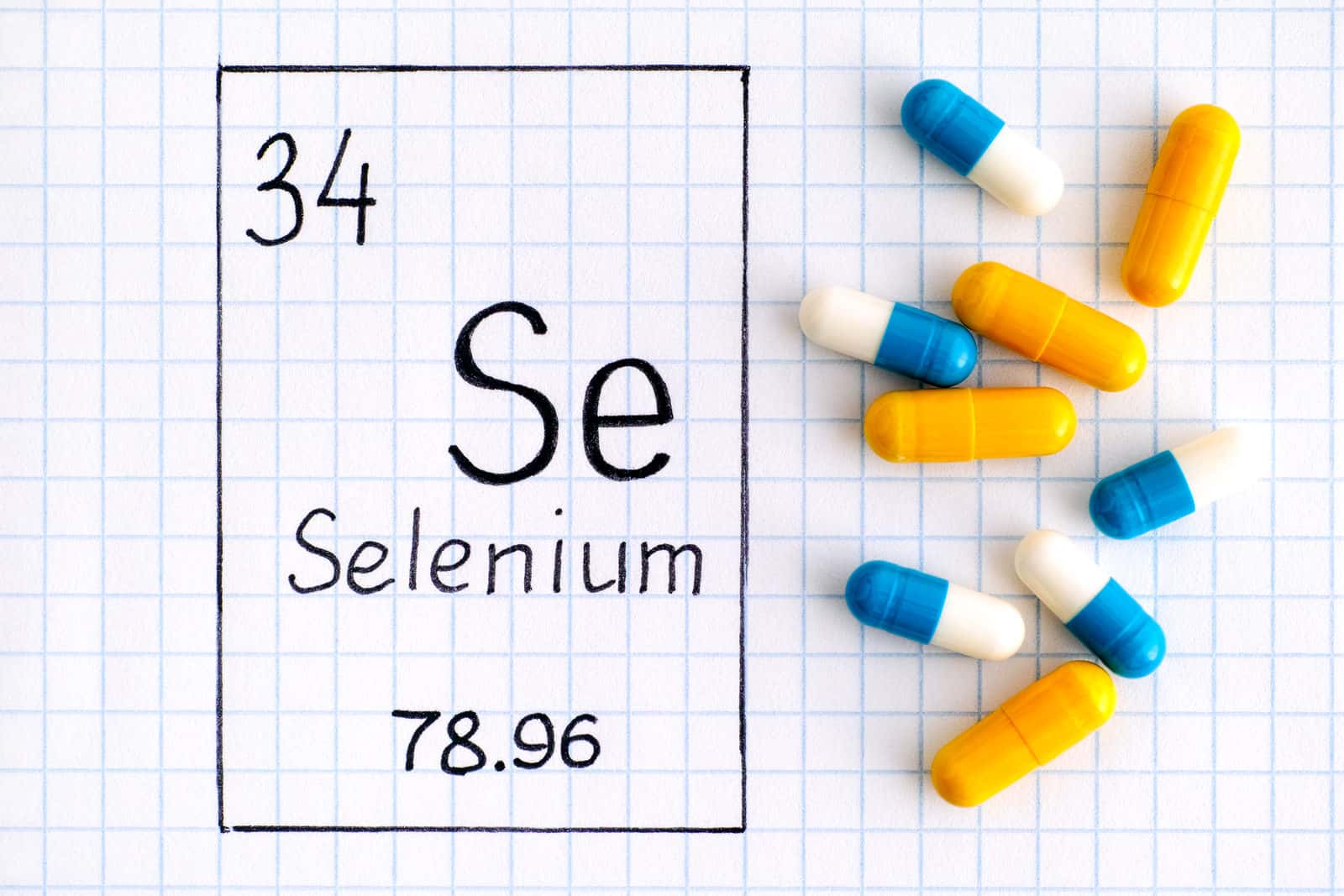
Acetaminophen has many names, including N-acetyl-para-aminophenol or APAP. Outside North America, people call it paracetamol. Usually, though, people recognize the brand name Tylenol most easily. Many people perceive this pain reliever as one of the safest drugs in the pharmacy. While it does not cause digestive upset as the NSAIDs do, it can damage the liver, especially at high doses. New research in mice shows, however, that low selenium can make acetaminophen more dangerous (Antioxidants & Redox Signaling, July 2, 2020).
What Is the Effect of Low Selenium?
The mouse research demonstrates that the maximum dose considered safe may actually be harmful when selenium levels are low. This apparently results from reduced activity of a liver enzyme, selenoprotein thioredoxin reductase.
The researchers conclude:
“Dietary selenium and selenoproteins play critical roles in protecting mice against APAP overdose.”
Beware Excess Selenium:
People reading this might be tempted to double up on a supplement. Too much of this mineral, however, may also increase the risk of acetaminophen-induced liver damage. Individuals who get excess selenium from a supplement or from Brazil nuts may notice hair loss, brittle nails, rash, fatigue, nausea and diarrhea.
Sources of the Mineral:
Ideally, people would be consuming foods that provide this mineral. These include fish, seafood, meat, poultry, eggs or dairy products. Grains can also be a good source of selenium if they are grown on selenium-rich soil. Some parts of China have very low selenium in the soil, but most of the North American midwest has adequate soil selenium.
Protecting the Liver:
Previous research has shown that some natural compounds can keep acetaminophen from harming the liver (International Journal of Molecular Sciences, Nov. 28, 2018). One of these, N-acetyl-cysteine, is usually taken as a dietary supplement. Dietary chemicals like ajoene from garlic and apigenin from parsley and celery are protective. So are herbal components such as baicalin, berberine or boswellic acid. Thymol and carvacrol from culinary herbs such as thyme can also help. Milk thistle (Silybum marianum) has a reputation for protecting the liver that appears to be grounded in fact (Evidence-Based Complementary and Alternative Medicine, March 2, 2015).
Citations
- Li J et al, "Selenium status in diet affects acetaminophen-induced hepatotoxicity via interruption of redox environment." Antioxidants & Redox Signaling, July 2, 2020. DOI: 10.1089/ars.2019.7909
- Subramanya SB et al, "Therapeutic potential of plants and plant derived phytochemicals against acetaminophen-induced liver injury." International Journal of Molecular Sciences, Nov. 28, 2018. DOI: 10.3390/ijms19123776
- Freitag AF et al, "Hepatoprotective effect of silymarin (Silybum marianum) on hepatotoxicity induced by acetaminophen in spontaneously hypertensive rats." Evidence-Based Complementary and Alternative Medicine, March 2, 2015. DOI: 10.1155/2015/538317

